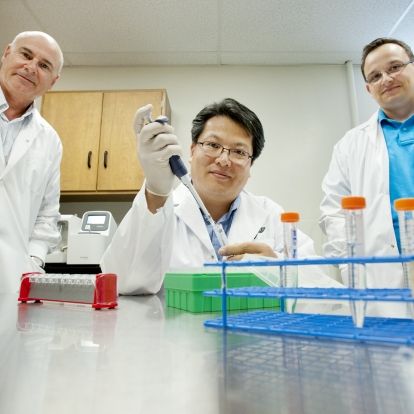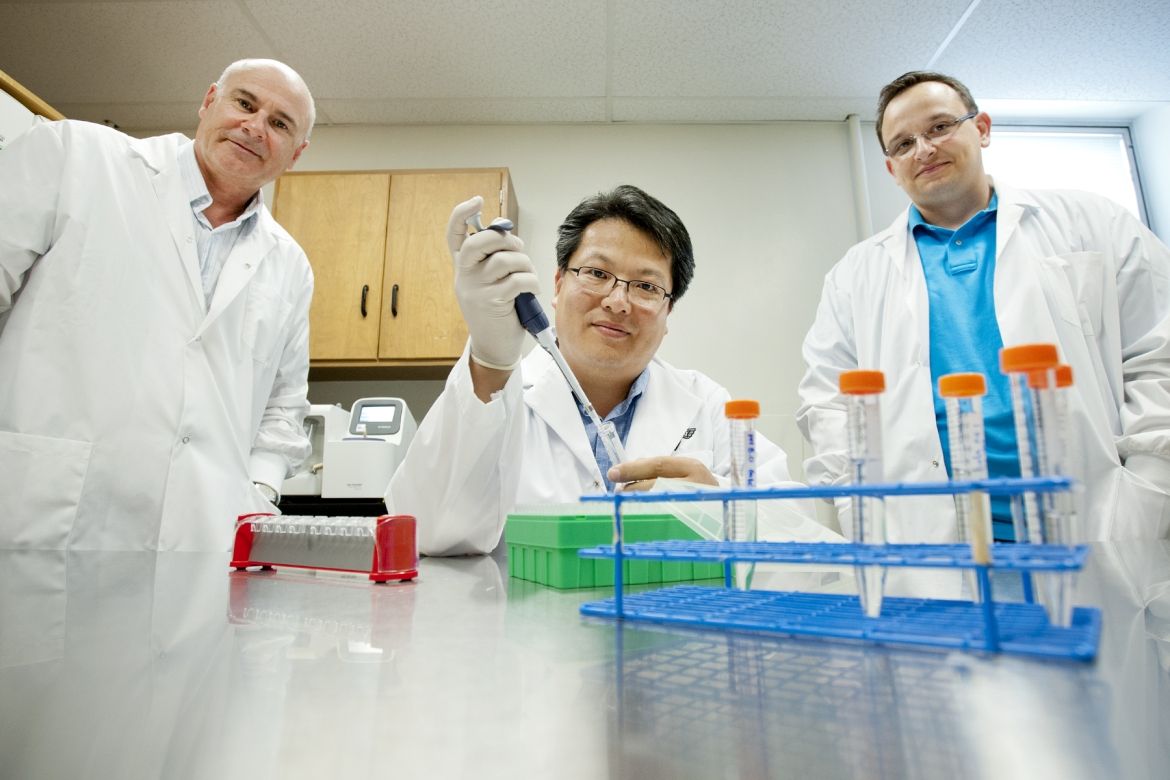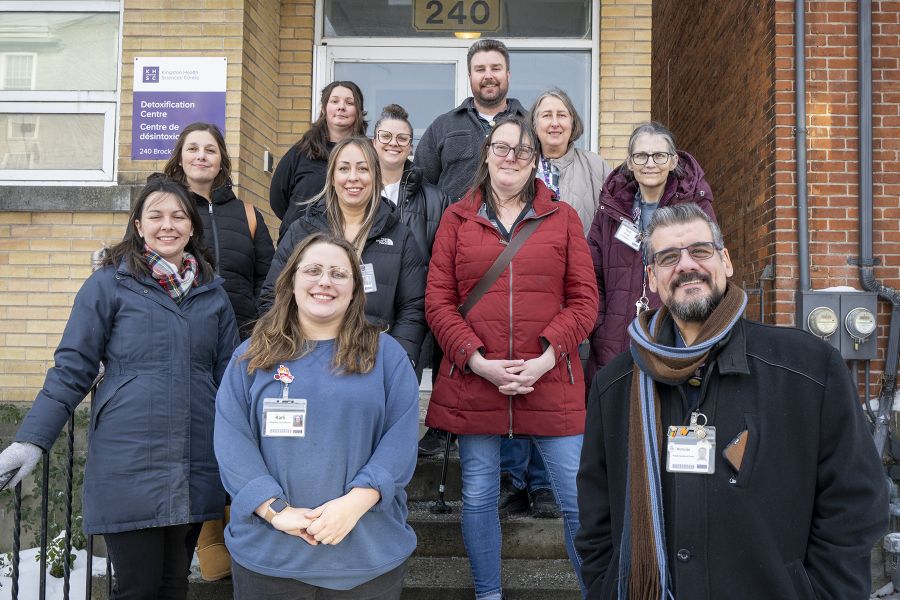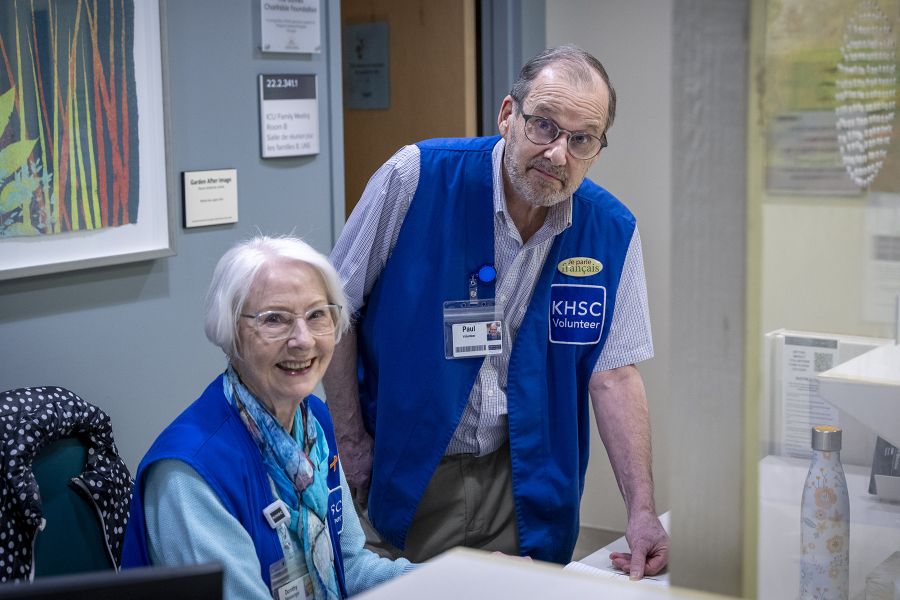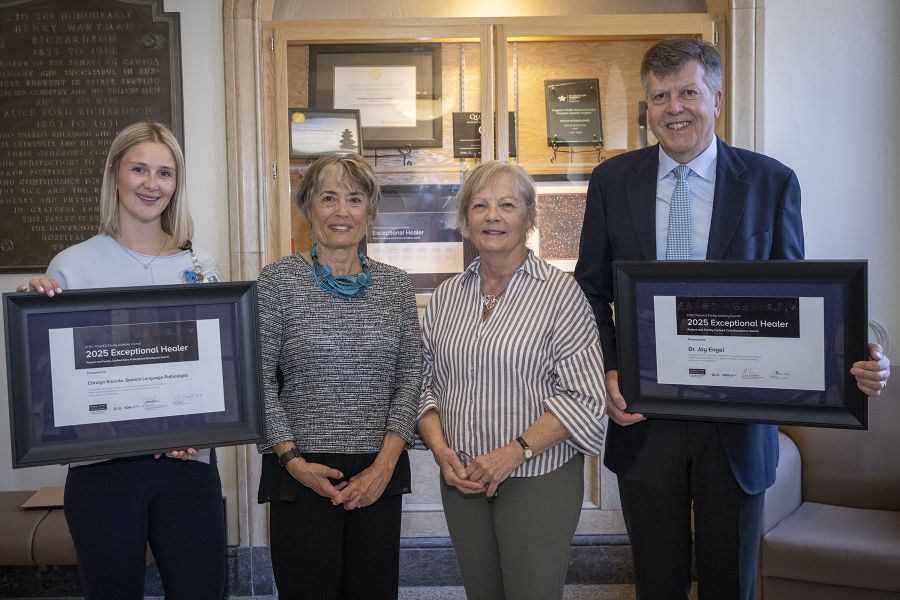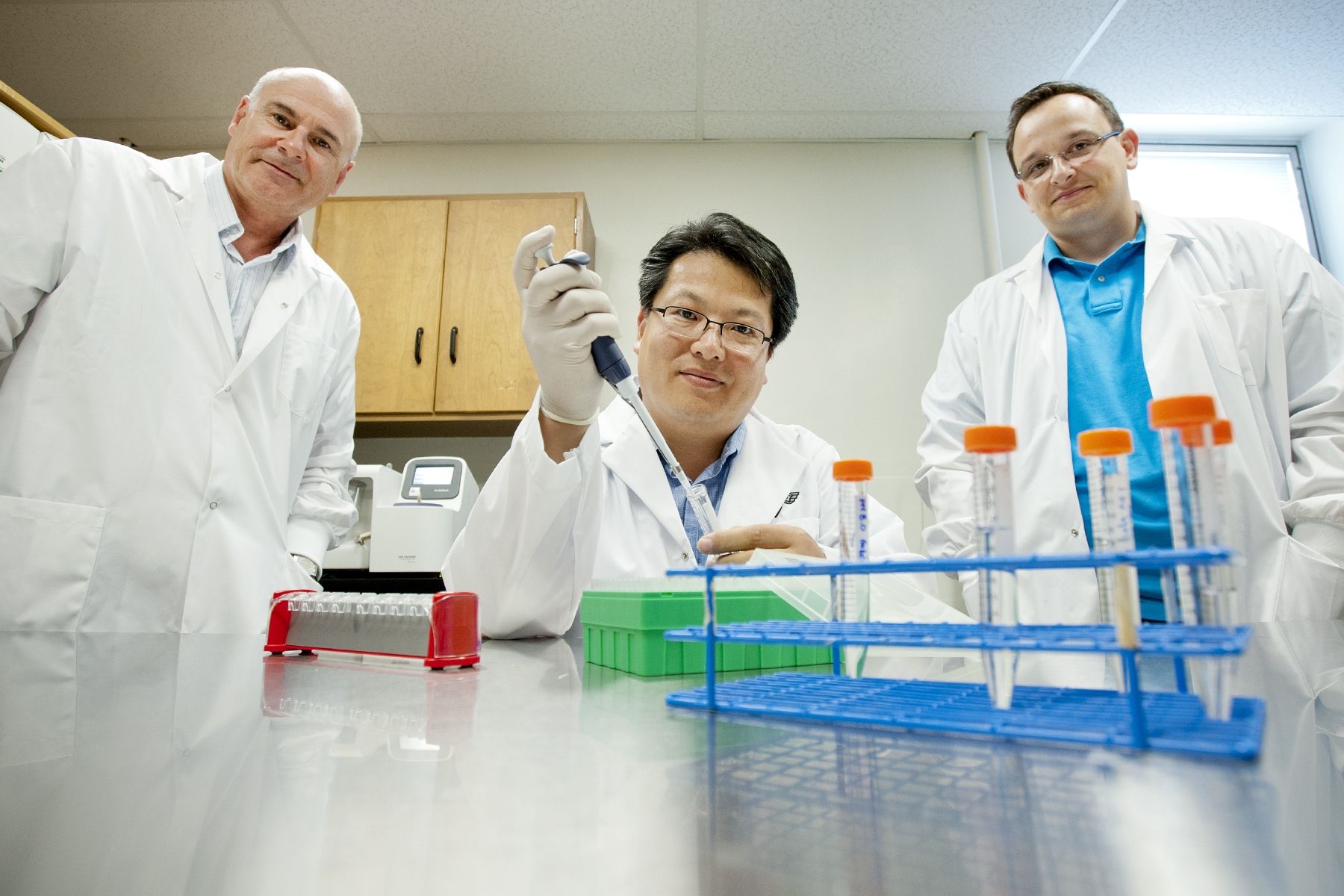
Men with prostate cancer could soon know precisely how serious their disease is - and how aggressively to treat it - the moment they are diagnosed, thanks to a new team of researchers at Kingston General Hospital.
"We hope to create a test so accurate that patients don't need to consider surgery or radiation unless it's really needed," says Jeremy Squire, Research Chair in Molecular Pathology at KGH and Professor in the Department of Pathology and Molecular Medicine at Queen's University. Squire heads up the research team along with recent recruits Paul Park and Paulo Nuin, both adjunct assistant professors. As members of the newly formed Canadian Prostate Cancer Biomarker Network (CPCBN), they are joining investigators from across the country who are working to create a test that could augment - or altogether replace - the Prostate Specific Antigen (PSA) test currently used. And thanks to a recent $4 million funding boost to the network via the Terry Fox Research Institute and the Canadian Partnership Against Cancer, a new test could be close at hand. Adding further momentum, Nuin and Park have secured two grants amounting to $300,000 from the Prostate Cancer Canada Pilot Grants for Young Investigators. The funding will go a long way to "creating significant research discoveries at KGH", says Squire. So why is a new test needed? Squire says it comes down to the PSA test's sensitivity. "The PSA test will detect even the most benign cases," he says. "That can lead to over-treatment, which is a problem especially in the case of elderly men in whom treatment could cause more damage than the cancer." Unlike the PSA blood test, the KGH team plan to develop a test that examines tissue from the tumour itself. "Our test would give a precise risk. So, in many cases, doctors would be able to tell patients that they'll be fine to live their life without undergoing further treatment," says Squire. As part of CPCBN, researchers will share clinical samples acquired at KGH with members across the country. Their inclusion is an important step for KGH, says Squire. "I've spent three years to ensure we were part of this," he says. "With KGH's access to a large cohort across Canada, we can design studies that will have national prominence statistically." The team is optimistic about how quickly they can develop the test. "If you'd asked me before, I would have said within five to ten years," says Squire. "Now, I'd say five." That timeframe is paramount because aging baby boomers will need the test the most, he says. "Our aging population is a great concern. But we hope to move from discovery to application very quickly." Above all, the new biomarker test would allow physicians to create a truly patient-centered treatment plan. "Treatment could be tailored to the type of tumour a patient has while taking into consideration his age," says Squire. "Now that's personalized medicine!"

